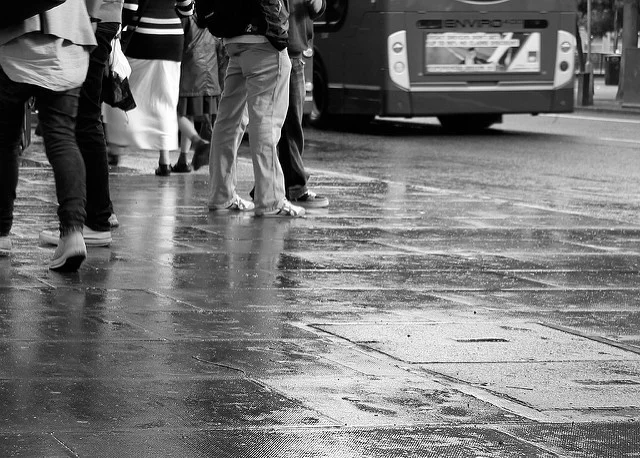Are you good at life? Could you be better? I’ve devoted hours to this elusive goal. Better at mindfulness. Better at writing newsletters. Better at being… better.[1]
Being better is, basically, leadership law:
Continuous learning
Executing
Innovating
Everything-ing
Even being better at failing. (Yep, apparently it is possible to fail at failure.)
Isn’t it good? Well yeah, maybe. But God, it’s exhausting. So much effort goes into being better. When do you get to be crap? I don’t mean feeling you’ve been a bit crap. Or that you haven’t done your best. I mean being crap on purpose.[2]
But… why would you? 🤯
Well, partly because there’s something liberating about not even intending to be great. And partly because, however marvellous you are, you won’t always add value.[3]
But also because not everything matters. At least not in the same way to the same extent at the same time. And figuring out what doesn’t matter leaves you more room for what does.
Also, whisper it, sometimes you just will be… a bit crap. 😱 So, to the extent that you can, you might as well be crap on purpose. Selectively, deliberately, and where your brilliant brain won’t make a difference.
Hang on a minute, what does that even mean?
Good question. What does being crap mean?
Is the outcome subpar?
Is the outcome fine but the expectation sky high?
Is the process less effort?
These are different things. They require a different response. And they can unfold in confounding ways. Fantasy expectation can obfuscate real need. Un-crap effort can produce a crap outcome.[4] And less effort can improve an outcome.[5]
And then, of course, there are degrees of crap. Sometimes more is more; sometimes it’s just meh. Sometimes the quality of attention is the difference between brilliance and balls-up.
But we often lump it together under one crap umbrella. Which isn’t helpful. So get curious instead. What does being crap mean in this context? What does it mean to you? What does it mean to someone else?[6] And: why?
It’s worth running a few experiments to figure this out. To gauge what being purposefully crap feels like. To sensitise yourself to its various qualities. And to find out where and how you could (or shouldn’t) be more crap. Here are three places you might start.
1. Where do you excel?
Excellence is satisfying. It makes us feel valuable.[7] Which makes excessive effort so enticing. But beyond a certain point, does being even more excellent make a difference? Does it serve you? Does it reduce your attention for other stuff? Could less effort in the process – being “a bit crap” – free you up elsewhere?
Run some experiments where you excel. Which bits of a task require your brilliance? Which just need competence? Where could you give less – perhaps in thinking time, detail or extras? What actually makes the difference? Your less will probably still turn out to be more.[8]
Get curious, too, about what’s actually valued. You might discover your extra effort isn’t. Or gets in the way. Which can be annoying, and disheartening, and more fool them, etc. But it’s also useful data in deciding what deserves best-brain. And what doesn’t.
2. Where do you secretly fear crapness?
Enough of excellence. Where do you give too much for fear of being not enough? What do you fear might be revealed without such diligence?
Fear might be essential, even enjoyable. But it also provokes all manner of peculiarities. Like going the extra fifty miles instead of one. Or ploughing in hours of thought where two would do.[9] Because if you didn’t, who knows what might emerge? 😬
Put your secret crappiness to the test. What happens if you ease off a bit? Where can you ease off? Where do you need to make more effort? What’s the sweet spot between underdone and overblown? Or between your fear-filled expectation and actual need?[10] And does your fantasyland perception of "crap" baffle everyone else?
3. Where does it just not matter?
The day other day, my (very patient) niece gave her (not very patient) aunt a cello lesson. Said aunt had always assumed an affinity with the cello. Sure, there’d be the odd duff note. And third position might be a stretch. No matter. She’d be singing out Elgar’s Cello Concerto in no time.
Reader, it’s true. I was singing the concerto in no time. I just wasn’t playing it. Turns out I find the cello both quite tricky and verrrrry painful.[11] I wasn’t just a bit crap. I was utterly crap. I couldn’t trap the strings. I played all over the bridge. I could barely hold the bow.
BUT
It was really fun! Because none of it mattered. Who cares if I suck at cello?[12] Not even me, despite my massive ego.
The thing about my job, and probably yours, is that there’s not much opportunity to be overtly crap. To be deliciously, delightfully rubbish. To revel in hilarious, abject failure precisely because it doesn’t matter. To care about process instead of outcome and notice how that feels. That’s hard in the whirl of work.
Which is a shame. Because actually, being deliberately crap is incredibly freeing. Sure, you might learn something. You might even discover a new talent.[13] But that’s not the point. It doesn’t matter. Literally no one cares, including you. Phew.
So again: get curious. What does being crap mean, and when, and why? Where is best-brain not required? When is effort driven by fear? How can you trade less effort on what doesn’t matter for more on what does? Where does being crap free your soul? 🥳
This is how to be more crap.[14] Not blithely and wholesale. But discretely, purposefully and, with a spot of luck, hilariously. So go on, kick up a stink! 👋
Keen to get curious and fancy a spot of help?
Get intensely curious about who you are, who you’re not, and what actually matters with Impertinent Questions. My nosiness meets your context each weekday for a month.
Get curious with The Curious Leader newsletter direct to your inbox. Longform, practical, personal opining on curiosity in leadership. Like today’s on FOBFO-busting, or this one on owning your success.
[1] Perhaps I should apply for BBC Director of Better.
[2] I’m currently in hostage negotiations with the “delivery” “service” Yodel, which has hijacked my parcel. Serious commitment to ‘be more crap’, there.
[3] And might make it worse. By redirecting attention towards you. Or asking redundant questions. Or squashing someone else’s opportunity. Or…
[4] I know, so unfair.
[5] As above.
[6] Like this morning, when a friend with an actual degree in maths described himself as ‘a crap mathematician’. 🙄
[7] And no wonder. More effort + more talent = better results is a very sticky notion. And makes more talent + tiny effort = same results seem terribly unfair. Although the hard work + talent = success equation collapses anyway because it’s so often trumped by privilege = success. Which isn’t to suggest you can’t be talented and hard-working and privileged (👋). Or a privileged distaster. But you won’t have to be as talented or as hard working to get further than someone with less privilege. Tricky, but true.
[8] Just don’t be a wally.
[9] Fear also provokes avoidance. On which: this.
[10] Years ago I spent fear-stained hours perfecting practice tracks for my choir. Just in case they weren’t (tr: I wasn’t) quite good enough. Pointlessly, as it turned out: they only ever got a brief, half-arsed listen anyway. So now they’re crap. I record one improvised version, and that’s it. Doing them quickly and crappily has saved me buckets of time. And: no one cares! 🤦♀️ Plus I preserve my energy for rehearsals, which is where my best brain really matters. (And where I change everything anyway.)
[11] Tragically, my callous heart hasn’t extended to callused fingers.
[12] Possibly the neighbours.
[13] I haven’t. But my kind niece has agreed to another lesson. I have agreed to be better behaved and less impatient. Unclear which will transpire.
[14] Has this post become unintentionally meta? 😬


